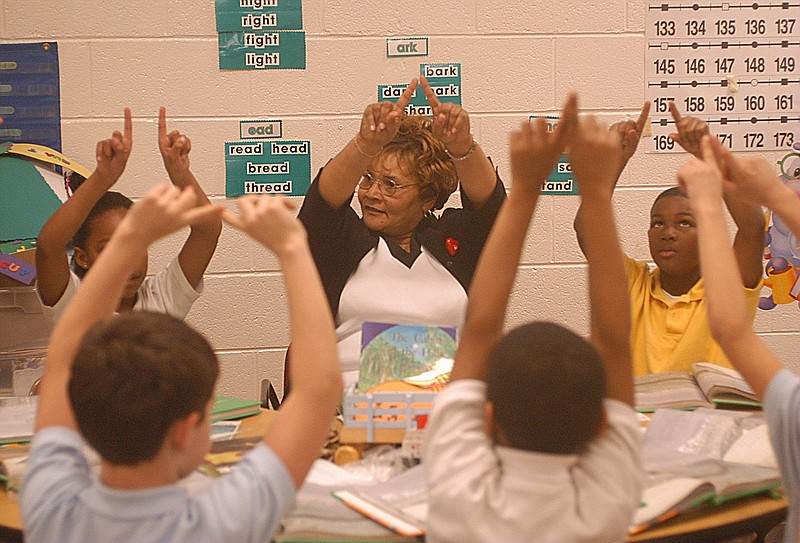More Info
And what about teachers?The governor could also reinforce his respect for teachers by vetoing a spiteful attempt to disrespect them.Legislation by state Sen. Todd Gardenhire began as an innocuous bicycle safety proposal but rewritten by an amendment to prohibit collection dues by payroll deduction for any education association with a political action committee. His target: the Tennessee Education Association.TEA mostly endorses Democratic candidates for legislative, county commission and school board seats. The bill, an ideological twin of his voucher plan, reflects an anti-public school bias and insults teachers. It may also explain Republicans’ poor relationships with teachers.
Gov. Bill Haslam wants a legacy of better K-12 schools, and his State of the State address Monday offered a step toward that goal. Business and industrial development, tourism and the arts flourish in Tennessee. There is no reason why our schools shouldn't as well.
Haslam proposed improvements in teachers' salaries and health insurance, $9 million for literacy coaches to upgrade reading instruction for students in grades 3-8, and doubling to $30 million schools' spending for technology.
But he also cited intangible results: money invested in schools now will yield savings in the future. Having better educated citizens reduces the need to spend more on health care and prisons. And excellent schools can help drive job growth.
The governor could go further by threatening to veto a school voucher bill set for House debate on Monday. Supporters say vouchers will rescue students from (mostly elementary) "failing" schools. But the financial impact could upend school systems' budgets, including Hamilton County's.
Lobbyists - among them the Koch brothers' Americans for Prosperity and the American Federation of Children - that gave pro-voucher legislature candidates some $1 million in 2014, will urge "aye" votes. They expect payback.
If the bill passes, 5,000 vouchers would be issued in the first year, double that number in the second year, leading to a 20,000 cap thereafter. Legislators should beware of the Iron Law of Unintended Consequences.
That's good advice for anyone embracing the questionable claim that in three years, some 35,000 students could be "vouchered" out of public schools and into private ones - if the latter will accept them. Many established private schools concerned about their own financial viability have already decided to pass.
It's not hard to see why. Under the proposal, schools that accept vouchers would have to agree that the per-student funding, about $7,000, would be payment in full for a year. Many students could land in church-related schools, but how many of those schools could absorb such an increase in new enrollees? Then there are the boys and girls who'd be left in "failing" schools. What about them?
Dollars aside, the recipient schools would have to show how the vouchered students' progress is measured. Even home-schooled students, all of whom must be registered through either a public school or an "umbrella" private school, must meet state criteria that pertain to curricula, (high school) graduation requirements and academic progress measured by standardized testing.
State analysts say school systems could lose $70 million and $60 million in state and local funding, respectively. They'd also lose about $2,000 per Title One student in federal funding, thus punishing left-behind low-income students.
At a time when school systems (including Hamilton County's) are suing Tennessee for inadequately funding the BEP, why would legislators increase the risk of more fiscal disarray? Haslam can head that off by vetoing the voucher proposal.
Michael Loftin is former editorial page editor of The Chattanooga Times.
